The short answer is that it depends.
By Keisha Graziadei-Shup

Read on to find out why.
As families rush to lock in their 2022 health care plans before open enrollment closes on December 15, 2021, it may be particularly important for women of childbearing age to investigate how or whether their health insurance providers will cover the type of health care they desire (like midwifery) in case of pregnancy.
This article provides some background information and discussion of what to expect when paying for care from a midwife. You will also learn about the various options for obtaining this increasingly popular type of maternity care.
Midwifery continues to be a solid choice for healthy women with low-risk pregnancies. More and more women are choosing midwives over traditional obstetricians for a number of reasons. The midwifery model of care, for example, is distinctive and attractive to a growing number of women.
More might go this route if the intersection of midwifery and insurance coverage were a bit less foggy. So, let’s turn on the foglights and clear things up a bit!
Types of Insurance Providers
It may help to first consider the types of insurance providers in three main categories.
Private insurance:
This is what most people have through Aetna, Anthem, Cigna, and the like, either through an employer or the insurance marketplace. You choose the coverage, premium, and deductible that best suits your family’s needs.
Medicaid:
This is a public insurance program that utilizes managed care to provide coverage for low-income individuals that meet certain criteria, including pregnancy.
Cost-sharing organizations (CSOs):
CSOs offer alternative programs that operate in similar ways to insurance companies but are different from traditional insurance in that they pull from a pool of monetary contributions from their members to pay health care providers. Rather than paying premiums, members chip in a monthly amount (usually much cheaper than most insurance premiums) to continually replenish this reserve.
Most of these CSOs are faith-based and have corresponding eligibility requirements. While there are a few that don’t, some expenses may not be “shareable” (or covered), like abortion services or certain fetal genetic testing, for example, that don’t align with their ethics. Furthermore, these plans may expect individuals to pay for routine and preventative care and only step in to negotiate costs and pay bills once a member has maxed out her annual out-of-pocket amount (like a deductible). Some popular CSOs include Medi-Share, Christian Healthcare Ministries, and Samaritan Ministries.
One big perk with these cost-sharing programs is that you can apply for enrollment anytime, and they fulfill the obligation for the government mandate for health insurance.
Is there still a government mandate for individual coverage?
Yes and no. A 2020 congressional briefing stated, “Since January 1, 2019, the requirement to maintain health insurance coverage, its corresponding penalty, and exemptions from the mandate have remained in statute, but the penalty for noncompliance has been effectively eliminated by being reduced to zero. By law, individuals are still required to maintain health insurance coverage or receive an exemption from the mandate, though they will no longer pay a penalty for failing to do so.”
Shared challenges, varied solutions

After interviewing three midwives in Southwest Virginia, it became apparent they all faced similar challenges but have somewhat varied solutions when it comes to billing and managing insurances. These women are:
Karen Winstead, certified nurse midwife (CNM), BSN, MSN, at New Life Birth Center (NLBC);
Sherrie Doss, certified nurse midwife (CNM), doctor of nursing practice (DNP), and women’s health practitioner in Mount Rogers District; and
Degra Nofsinger, certified professional midwife (CPM) at Luna Midwifery, and immediate past president of Virginia Midwives Alliance (2014-2018).
Using a cost-sharing organization (CSO)

All three midwives are in agreement that they and their patients experienced the best billing outcomes with cost-sharing programs. These programs tend to be quite flexible about letting women choose their providers. They pay for the cost of these services, usually in full or close to it.
Women should contact their CSO to ensure their midwife is in their system, or take the steps to add her. This may be a simple form for the patient to give her midwife to fill out and have sent back to the CSO.
Typically payment is managed through a reimbursement process: The patient pays her midwife upfront and the CSO reimburses the patient, usually after the baby is born and all costs have been incurred.
Families should be prepared to be out of pocket for that time – as little as three months or so, but sometimes up to a year, depending on the particular program’s billing process and requirements. Midwifery fees are significantly less than hospital fees, so it’s usually a manageable expense with some planning. For those who cannot afford to be absent this amount at once or for this long, midwives tend to be very flexible in working out payment plans according to individual needs.
Women should check with their CSO sooner than later to find out what exactly they need to do to complete the full reimbursement process.
Using private insurance
If a private insurer claims to cover midwifery at all, it may or may not be straightforward to collect payment. All midwives interviewed communicated grief over past dealings with private insurance companies, echoed by patient experiences.
Depending on your midwife, getting payment from a private insurer is typically done through a reimbursement process also. However, compared to CSOs, recuperating money from a private insurer can be more complicated at best, and ineffectual at worst. Sometimes, if rarely, it can work out smoothly, depending on the insurance company.
Lindsey Little birthed two babies through New Life Birth Center and has tried both ways. The first time, she had private insurance, and the second time used a CSO. Regarding the private insurer she explains in an e-mail, “Even though we were told they covered our midwife, there were issues with paying for newborn care and stay at the center. It took almost two years to get that issue settled and we paid more out of pocket than we should’ve.”
On the other hand, the CSO she used the second time, Christian Healthcare Ministries, was prompt with full reimbursement and easy to work with.
As a paying client, patients are more successful at obtaining a reimbursement from their private insurer than a midwife trying to collect payment. Insurers don’t stand to lose anything if they don’t pay midwives but stand to lose a client if they don’t reimburse the patient.
Why midwives usually don’t bill directly
“When [a midwife is] in network with insurance providers, you have to accept what they pay you which isn’t enough, and you’re not allowed to bill the patient for the difference,” Winstead explained. This makes it difficult for midwives trying to keep their doors open when they charge so little in the first place.
Neither New Life Birth Center nor Luna Midwifery will even try to collect payment directly from a private insurer. For midwives, “private insurance is really terrible,” Nofsinger says. “If you’re not in network with them, even if a client requests out-of-network coverage, sometimes they can’t find you in the system, and they come up with reasons to not pay. They’re not always honest and upfront…and I don’t have time for it.”
From all her experience, Nofsinger made one exception: She said United Healthcare paid her well in the past. (However, at the time of this article, I asked United Healthcare about midwifery coverage and they responded that none of their plans cover it unless there are complications. This probably means care is only covered once a woman is transferred to a hospital. I didn’t specifically ask about out-of-network benefits, though.)
Doss is one area midwife who is an exception. She works in a particularly resource-limited area and so has committed to accepting any form of insurance.
Since billing is a separate profession from midwifery, midwives are not trained on how to deal with insurance and typically don’t have enough patient volume to justify a whole billing department, as is done in a hospital. So, Doss contracts a third party biller to manage all her billing for her. Those willing to do this type of billing are allegedly not only rare to find, but themselves can often have challenges navigating the system and obtaining desirable results. Winstead corroborated this fact, as she had also tried this in the past.
Since Doss bills directly, she also pays her biller to research the patient’s insurer beforehand to see whether and to what extent midwifery services are covered. (Usually this is the patient’s responsibility.)
Look for insurance with out-of-network benefits.
“Some people have good out-of-network coverage and can get most of the cost reimbursed,” Winstead says. She also advises, “When you’re looking for insurance, look for insurance with out-of-network benefits. Look at the deductibles because you may be able to put aside money each month in an HSA [(health savings account)] or other account so that the deductible is easier to meet.”
Using Medicaid
Some midwives accept Medicaid and some don’t. While coverage has expanded in Virginia in recent years, still not everyone qualifies.
Birth centers
New Life Birth Center stopped accepting Medicaid in 2014. “We could never get them to pay a reasonable fee for professional services and they wouldn’t pay facility fees,” Winstead explains. At that time, Medicaid would pay the center $900 per birth, which was less than half of what the center needed to operate. “I would pay five dollars for a dose of vitamin K and Medicaid would pay me one dollar back. The state required me to provide labs, but wouldn’t reimburse me the cost of the kits. Everything was like that,” she says.
Birth centers offer a variety of benefits both to the patient and the provider but come with some overhead costs. In addition, unlike hospitals, midwives who manage such facilities experience challenges recuperating these costs both from Medicaid and private insurers. When they make the tough decision to not accept Medicaid, centers like NLBC go to great lengths to keep costs low and to be flexible, so as to remain accessible to low-income individuals.
(Winstead is additionally hesitant about what restrictions or requirements could come attached with government funding that might complicate the type of care desired by women in rural Southwest Virginia, or the type of care staff feel comfortable administering.)
Home births
Some things have changed since 2014 and Medicaid pays more now. So, other midwives who do home births, like Nofsinger and Doss, find it worthwhile to accept Medicaid. As immediate past president of the Virginia Midwives Alliance, Nofsinger has advocated firsthand for midwifery coverage from the state. She continues to be encouraged by current discussion of potential future coverage for more types of midwifery services.
For women who already have Medicaid and are seeking midwifery care, there’s a particular process. First, they should ensure that their desired midwife is a Medicaid provider. Next, they should apply for an exemption at 28 weeks of pregnancy.
Medicaid recently changed a former exemption rule to now allow any pregnant woman on managed care to apply for an exemption and switch to midwifery care. This can happen as early as 28 weeks but must be before birth. Exemption requests have, since then, increased by 300%, Nofsinger says.
In case of a hospital transfer, Luna Midwifery charges the Medicaid patient an $800 transfer fee, since there would then be an overlap between what Medicaid would have paid versus what they’ll actually pay in that case.
Unlike with private insurance and CSOs, Medicaid patients aren’t eligible for a reimbursement process since Medicaid is a program for people who can’t afford childbirth. Paying up front would indicate that someone can afford it.
Also worth noting is that Medicaid doesn’t cover prenatal care by a midwife before 28 weeks. In Nofsinger’s case, she provides prenatal care anyway, risking that the patient could fail to obtain the exemption, or get transferred to the hospital.
When a woman chooses midwifery

It can be tempting for a woman to forego her preferred care in order to pursue the path of least resistance – the hospital. It’s very convenient that hospitals have their own billing departments. The fact that most midwives don’t creates a hurdle for both midwives and women wanting different care. While things are slowly changing, systems are primarily set up to suit hospitals and private insurance companies. That’s where the greatest profit is.
So how do we change things? We can start by putting our money elsewhere and by placing more demand on the current supply. A woman doing a little extra legwork to get what she wants and needs is one of the greatest ways she can advocate for both herself and future generations of women.
The phone calls women make to their insurers asking about midwifery coverage – even if they say no now – will add up. Every time a woman asks her obstetrician about laboring in water, or if they provide or allow doulas, or whether she’ll be pressured into a c-section or unwanted interventions, and makes decisions about her care accordingly, the more hospitals will learn that maybe they need to change some things.
We’ve already begun to see small changes, and together we can see more. Ensuring reasonable compensation will help midwives keep their doors open and allow women to have more choices for the care that’s best for them.
Do you have personal experience with this topic that you’d like to share to help other women or providers? Do you have advice or tips? Whether you’re a mother, midwife, or other care provider, we’d love to hear from you in the comments below.



Ms. Graziadei-Shup,
Hi, my name is Jeremy, I am a doctoral student, and my area of research is women’s health. Specifically, I am looking at challenges for Birth centers. I am working closely with a Midwife here in Harrisonburg Virginia, and after a conversation with her I started looking at some of the problems with insurances.
I just read your article Does Insurance Cover Midwives and Birth Centers? December 30, 2021
and have a few questions.
I would like to schedule an informal interview with you over the phone, on zoom, or on face time.
I am willing to meet with whenever it is convenient for you, and if it not this week that is great. However, I have an assignment due this Sunday so if you cannot meet with me in the next few days can you please direct me to someone who can?
Thank you so much,
Jeremy Baxter
Doctorate of Business Administration student (Integrative Health)
City University of Seattle
540-405-1727
Jeremy, it was a pleasure talking with you! Thanks for reaching out. We look forward to seeing what you’ve written.